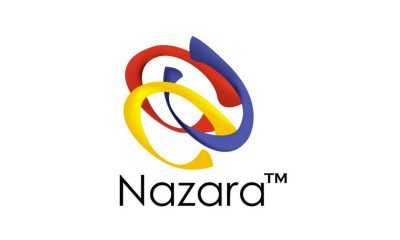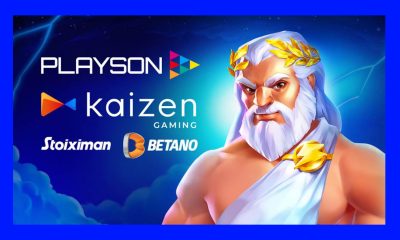Latest News
PandaScore signs esports odds, data & Widget agreements with Betcris and Pixel.bet

 Reading Time: 2 minutes
Reading Time: 2 minutes
Live esports odds & stats provider cements position as leader in live esports data as it partners with Tier 1 operators
International operators looking to capitalise on the boom in esports betting need look no further than PandaScore, the market leader for in-play esports odds and statistics. This week, the esports data provider celebrated a pair of significant new client wins having been selected by both Betcris and Pixel.bet.
Founded in 2015, PandaScore has grown exponentially as esports betting has exploded in popularity around the world. With offices in Paris and Malta and highly reliable proprietary artificial intelligence at its core, PandaScore has become a frontrunner in the provision of real time esports odds and data which has now been integrated with leading Latin American sportsbook Betcris.
Many leading operators and traditional bookmakers have mitigated the lack of summer sport in lockdown by pivoting towards esports and the vertical, already growing in popularity incrementally, has boomed as a result. High volume operators such as Betcris require a stable, reliable and comprehensive solution for their esports data and odds needs – all things PandaScore consistently delivers for its clients.
Additionally, PandaScore recently launched its innovative esports stats Widgets through an integration with leading esports bookmaker Pixel.bet. The new Widgets are designed to give esports bettors all the information they need to bet confidently. Players can see data on recent wins and losses, head-to-head records and in-game performance statistics at the touch of a button.
Esports bookmakers have traditionally struggled to provide engaging content to fans because accurate data was unavailable. Building a custom Widget for multiple esports games was worth the effort, since esports fans rely on outside data for making astute betting decisions.
PandaScore’s esports Widgets are the most efficient and effective way for leading esports bookmakers like Pixel.bet to deliver relevant and near real time statistics to their players. Esports with the largest bet volume such as CS:GO, League of Legends, and Dota 2 are all featured within the Widgets with both pre-match and live data available.
When paired with PandaScore’s odds and data products as adopted by Betcris, the new Widgets offer an incomparable betting experience to esports fans around the world.
Adam Bjorn, COO at Plannatech/Betcris said: –
“We’re delighted to have access to PandaScore’s abundance of real time esports odds and data. They have feeds for every in-play market we need across all esports and thanks to their efficient collaboration with our development team, we completed the integration in no time”.
Eirik Kristiansen, CEO at Pixel.bet said:-
“We were very impressed with the content capabilities of PandaScore’s esports Widgets and I’m excited that Pixel.bet is the first esports betting operator in the world to offer such an innovative data delivery tool to our players”.
Flavien Guillocheau, Founder & CEO at PandaScore said: –
“Successful esports betting is a matter of good luck and good judgement and whilst PandaScore can’t help with the former, the latter can be greatly enhanced through the data provided to players and our new esports Widgets. We’re delighted to launch this new innovation with leading esports betting operator Pixel.bet and to be providing esports data to a brand as well regarded as Betcris. We look forward to integrating with more leading operators in the near future”.
Source: Latest News on European Gaming Media Network
This is a Syndicated News piece. Photo credits or photo sources can be found on the source article: PandaScore signs esports odds, data & Widget agreements with Betcris and Pixel.bet

eSports
CS:GO Betting Gains Momentum in the iGaming Sector

The emergence of betting on CS:GO has transitioned from a niche market to a considerable portion of the iGaming market. This article looks at the reasons behind the growth, the most popular formats, trends, demographics, geography, and implications for the market. Based on estimates from Esports Insider, the betting market was valued at US$2.5 billion in 2024 and is expected to reach US$2.8 billion by the end of 2025, highlighting the growth of betting in competitive gaming.
The scope of wagering on competitive shooter titles like CS:GO has shifted from informal betting between individuals to sophisticated betting systems involving wagering virtual items, live match bets, and case opening.
The convergence of high-visibility esports, interactive and gambling mechanics, and real-world value gambling items has developed a strong sub-market in the iGaming market, examined in this article.
The Rise of CS:GO Gambling Across Platforms
As central hubs for wagering activities on CS:GO skins and other virtual items, leading CS2 gambling sites have become increasingly popular. Users deposit in-game assets, open cases, and bet on matches or games involving items. The business model is based on converting digital items into gambling entries and completing rapid, high-volume transactions.
For February 2025, a UK Gov.uk review reported 6.9 million unique visits to skins gambling sites worldwide, with 44.9 per cent of the audience in the 18 to 24 age bracket. Members of the 11 to 14 age group were more than twice as likely to participate in skins gambling as those aged 22 to 24.
For analysts, this is proof of the rapidly expanding gambling ecosystem centered on CS: GO and the increasing interest it is attracting from mainstream iGaming operators and affiliates.
The gambling and betting industry has also noted this expansion. Esports Insider place the 2024 esports-betting market at 2.5 billion USD, with projections for the end of 2025 sitting at 2.8 billion USD, confirming that the industry is moving from niche wagering into more mainstream betting.
How Player Engagement is Driving Industry Growth
Players are no longer limited to betting on the outcome of a game; they now participate in the more immersive experiences of skins and case openings and even event mini games. As of late, almost fifty per cent of bets placed on esports are in-play as the streams are ongoing.
The excitement in skin gambling is derived from the thrill of trying to acquire scarce game elements, where the high and the low are strikingly similar to casino games. The above-mentioned review from Gov.uk shows a disproportionate capture of the under-18 audience, where engagement is particularly high and entrenched in behaviours that are predicting gambling.
Participatory growth contributes to turnover, increased market share, and the capture of advertisers and affiliates. We are beginning to see affiliates take a more product-focused approach as high engagement and growth of user bases are influencing design.
Emerging Trends in Virtual Item Wagering
Several trends are changing the nature of gambling with virtual items. Analysts share that the first of such trends is the acceptance of skins and other game elements as a quasi-currency wherein the buying, selling, and wagering of such items have real-world gambling implications.
Hybrid formats other than traditional match betting continue to grow in popularity. These formats primarily rely on chance and are more akin to traditional casino games than sports betting and include case openings, coin flips, crash games, and jackpot games.
Per a regulatory review, the skins-gambling platforms are designed with weak age-gating and responsible gambling controls. These platforms are largely accessed by adolescents, and users exhibit behaviours that are consistent with traditional gambling.
Analysts suggest that operators on these platforms are adopting new trends which include mobile-first interface designs, live micro-betting, skin deposit methods, and cross-platform marketing. The use of these features suggests that betting on virtual items has become part of the mainstream wagering practices in the esports ecosystem.
Partnerships and Market Expansion in iGaming
Partnerships for market expansion between operators, esports organisations, streaming platforms, and item marketplaces are key developments in the gambling market.
Industry sources from the likes of SiegeGG and Bookmaker expert report that operators use strategic partnerships with content creators and esports teams to promote visibility for skin betting and wagering software. Operators are going beyond traditional sports betting and incorporating skin commerce, live-streaming, and cross-platform inventory management.
On the affiliate side, those who understand gamer behavior and the content distribution and inventory flow ecosystems will have better opportunities to capture and retain users.
Looking Ahead
With the recent expansion of CS:GO wagering, it has become a substantial sub-segment of the iGaming industry. Industry forecasts show revenue growth and greater engagement, indicating strong momentum.
However, the potential for success hinges on effective risk management, respect for the relevant regulation, and a command of the virtual item economy.
Analysts explain that operators need to find the balance between growth-led product design and the obligations of player protection, while affiliates need to master the skin wagering mechanics, cross-platform engagement patterns, and promotion accountability.
Investors will want to understand the market potential in the context of legal, operational, and demographic factors that will influence wagering activity.
Latest News
PH 3RD QUARTER GGR FLAT AT PHP94.51B AMID ONLINE GAMING REFORMS
Reading Time: 2 minutes
The Philippine gaming industry posted Php94.51 billion in gross gaming revenues (GGR) in the third quarter of 2025, a slight dip from the Php94.61 billion a year earlier as the industry adjusts to online reforms and tighter rules on digital payments.
The Philippine Amusement and Gaming Corporation (PAGCOR) said the Electronic Games (E-Games) segment remained the strongest performer, rising 17.4% to Php41.95 billion from Php35.71 billion year-on-year.
PAGCOR Chairman and CEO Alejandro H. Tengco noted, however, that the E-Games growth was mainly due to strong July 2025 numbers as revenues in August and September declined following the mandatory delinking of e-wallets from legitimate gaming platforms.
“The figures reflect an industry that is adjusting to necessary safeguards,” he said. “The delinking of e-wallets resulted in a short-term decline in activity toward the latter part of the quarter,” he said. “However, these measures are vital to protect players and ensure secure, transparent transactions.”
He also cautioned that while legitimate operators strictly comply with the new rules, illegal online gaming sites continue to expand aggressively, putting players at risk.
“These unauthorized platforms do not follow responsible gaming standards, do not pay taxes, and put players at risk of data theft and fraud,” Mr. Tengco said. “We urge the public to avoid illegal sites and to engage only with PAGCOR-licensed platforms.”
Outside of E-Games, all other gaming segments registered lower earnings during the third quarter.
PAGCOR-operated casinos recorded an 11.6% decline from Php3.64 billion to Php3.22 billion, while licensed casinos fell 10.2% from Php50.72 billion to Php45.56 billion. Bingo revenues likewise slid 16.2% from Php4.52 billion to Php3.79 billion.
In terms of GGR share, PAGCOR-operated gaming venues generated 3.4% of the GGR pie while licensed casinos brought in 48.2%. E-Games contributed 44.4% and bingo operations accounted for 4% of GGR during the quarter in review.
Despite the downward trend in some gaming segments and adjustments in the online digital payment ecosystem, Mr. Tengco expressed confidence that the industry would regain momentum as players adapt to new e-wallet protocols while authorities strengthen enforcement measures against illegal gambling portals.
The post PH 3RD QUARTER GGR FLAT AT PHP94.51B AMID ONLINE GAMING REFORMS appeared first on European Gaming Industry News.
Latest News
Kambi Group plc’s CEO Werner Becher acquires shares in Kambi
Reading Time: < 1 minute
Kambi today announces that CEO Werner Becher acquired 28,360 shares in Kambi on 7 November 2025.
Werner Becher has on 7 November 2025, through his associated company WBCH Invest Ltd, acquired 28,360 shares in Kambi. The average price for the transaction was SEK 114.24 and the total value was SEK 3,239,846.
Following the transaction, Werner Becher holds a total of 98,360 shares, equal to 0.33% of the total share capital, and 279,724 options in the company.
The transaction was reported to the Malta Financial Services Authority on 10 November.
The post Kambi Group plc’s CEO Werner Becher acquires shares in Kambi appeared first on European Gaming Industry News.
-
Latest News3 months ago
ReferOn Shortlisted for Acquisition & Retention Partner of the Year at SBC Lisbon 2025
-
Latest News2 months ago
Duels for Friends in Trophy Hunter. Invite your friends and create a shared space for fun and competition.
-
Latest News3 months ago
BC.GAME Launches “Nezha” Slot with Up to 46,656 Ways to Win and 10,000x Max Payout
-
Latest News2 months ago
Announcement: 25th September 2025
-
Latest News3 months ago
NODWIN Gaming Acquires Sony Interactive Entertainment’s Stake in Evo; Becomes Majority Holder
-
Latest News3 months ago
Cyprus National Betting Authority Warns Public About Illegal Online Gambling and Misinformation
-
Latest News2 months ago
Flamez – A Fiery New Online Casino Contender from Ganadu
-
Latest News2 months ago
The Countdown is On: Less Than 3 Months to Go Until The Games of The Future 2025 Kicks Off in Abu Dhabi

















You must be logged in to post a comment Login